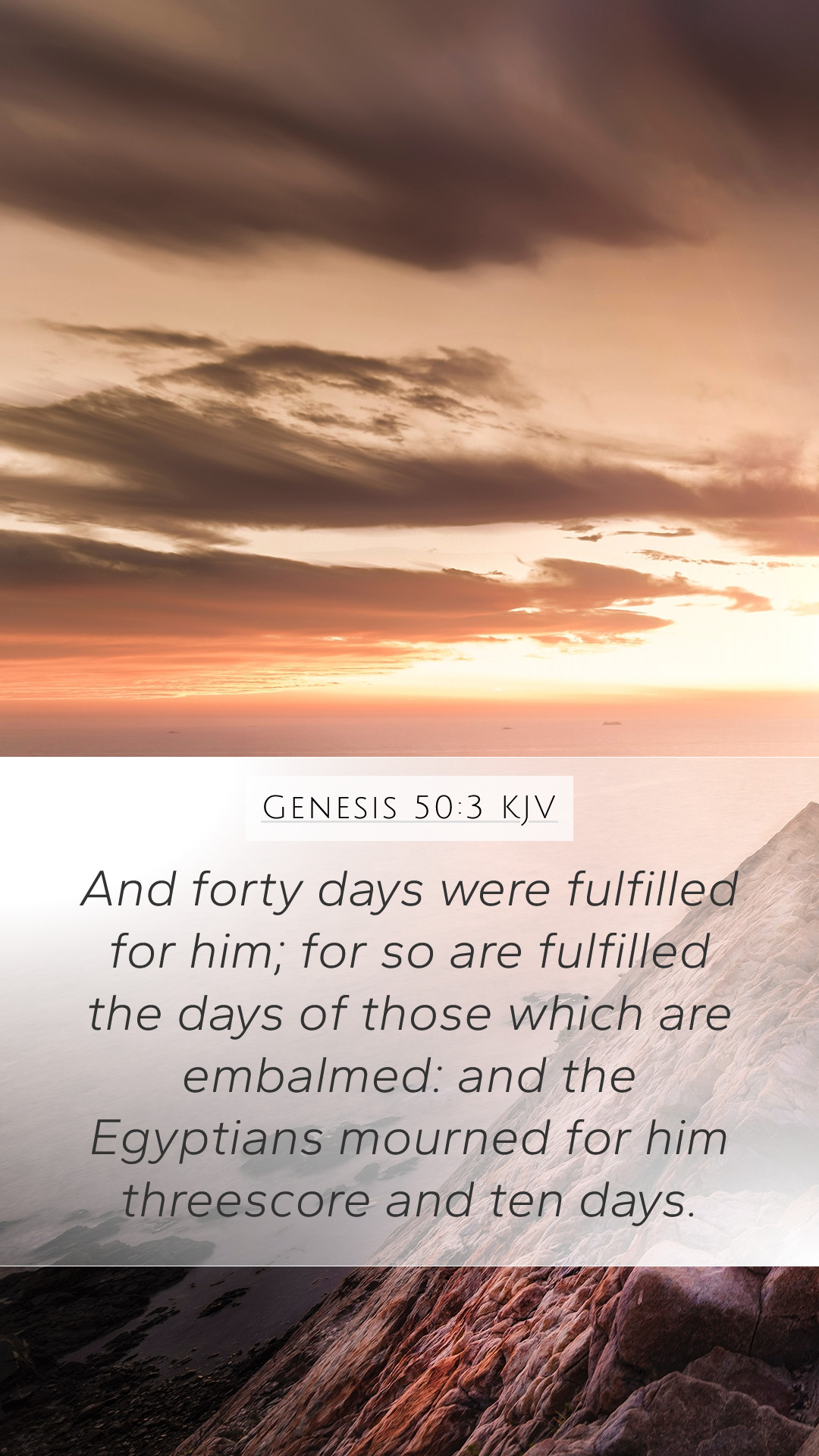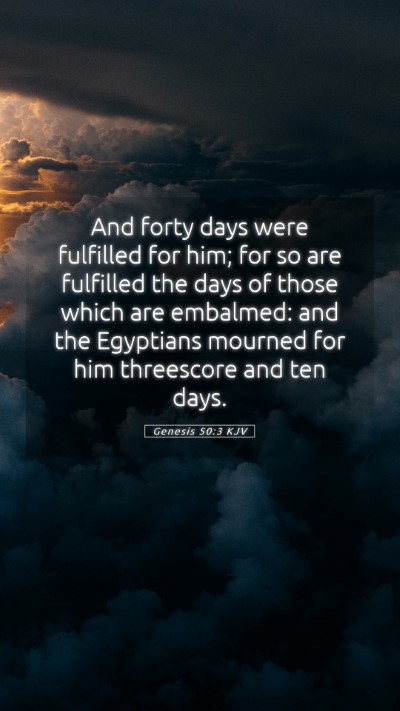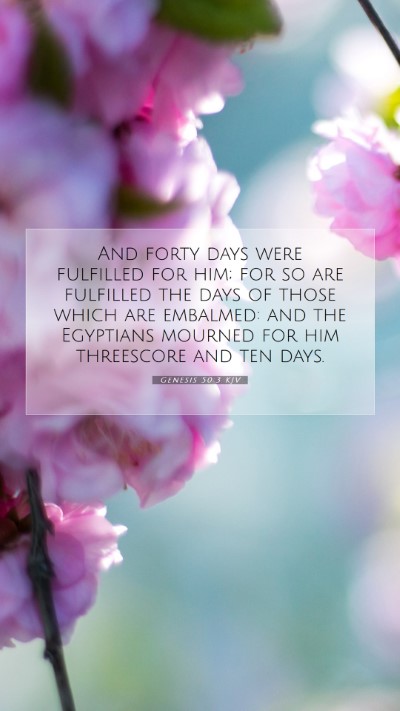Understanding Genesis 50:3
Genesis 50:3 says, "And forty days were fulfilled for him; for so are fulfilled the days of those which are embalmed: and the Egyptians mourned for him threescore and ten days." This verse highlights the mourning period for Jacob's death and his embalming, illustrating the customs surrounding death in ancient Egypt.
Bible Verse Explanations
In exploring the bible verse meanings of Genesis 50:3, several insights can be derived from public domain commentaries, particularly those by Matthew Henry, Albert Barnes, and Adam Clarke.
Contextual Background
The historical context is crucial for understanding this verse. Jacob's death marks a significant transition in the narrative of Genesis, pivoting from the patriarchal stories to the enslavement of the Israelites in Egypt. The emphasis on the mourning period reflects the cultural practices of the time.
Mourning in Ancient Egypt
Matthew Henry notes that the mourning lasted for a total of 70 days. This extended period was a sign of respect and the sorrow of the family and community. Henry emphasizes that the customs surrounding death were taken very seriously in Egyptian society, symbolizing not just loss but also the community's reverence for the deceased.
Embalming Practices
Albert Barnes elaborates on the embalming practices mentioned in the verse. He explains that embalming was a common practice in Egypt to preserve the body for the afterlife. This reference indicates Jacob's status as a patriarch in a foreign land, reflecting the respect he garnered even outside of his own heritage.
The Significance of the Number of Days
Adam Clarke signifies that the number of days (40) for fulfilling mourning rites corresponds to the Egyptian method of honoring the dead, which often included various rituals and ceremonies to ensure the departed's safe passage to the afterlife. The number signifies completeness and creates a connection between earthly lives and divine understandings of existence.
Applications to Daily Life
Understanding Scripture like Genesis 50:3 can provide insights into our lives today. The prolonged mourning period can encourage individuals to reflect on the importance of honoring those who have passed and the impact they had on our lives.
Significance of Mourning
Mourning serves as a process of grief, allowing communities and families to come together and support one another. The cultural practices of mourning outlined in this verse can serve as reminders of our shared humanity and the importance of community during times of loss.
Biblical Exegesis
The biblical exegesis of this passage invites readers to consider how grief is expressed across cultures and how ancient practices might inform our contemporary understanding of loss.
Related Bible Cross References
- Genesis 47:30 - Jacob's request to be buried with his ancestors.
- Genesis 49:33 - Jacob's death and his final instructions.
- Exodus 13:19 - The transport of Joseph's bones back to Canaan.
- 1 Kings 13:29 - Reference to lamentation practices in Israel.
- Ecclesiastes 3:1-4 - A time for every purpose under heaven, including mourning.
Conclusion
Genesis 50:3 serves as a poignant reminder of the customs of mourning and respect for the deceased, illustrating the depth of human emotion associated with loss. Through this verse, we gain insights into not only ancient practices but also the lasting significance of mourning in our lives today.
Bible Study Insights
For bible study groups and online bible study sessions, focusing on the emotional and cultural nuances presented in Genesis 50:3 can provide profound discussions on loss, grief, and remembrance. These insights are essential for bible study guides and bible study materials focused on the themes of life and death.


